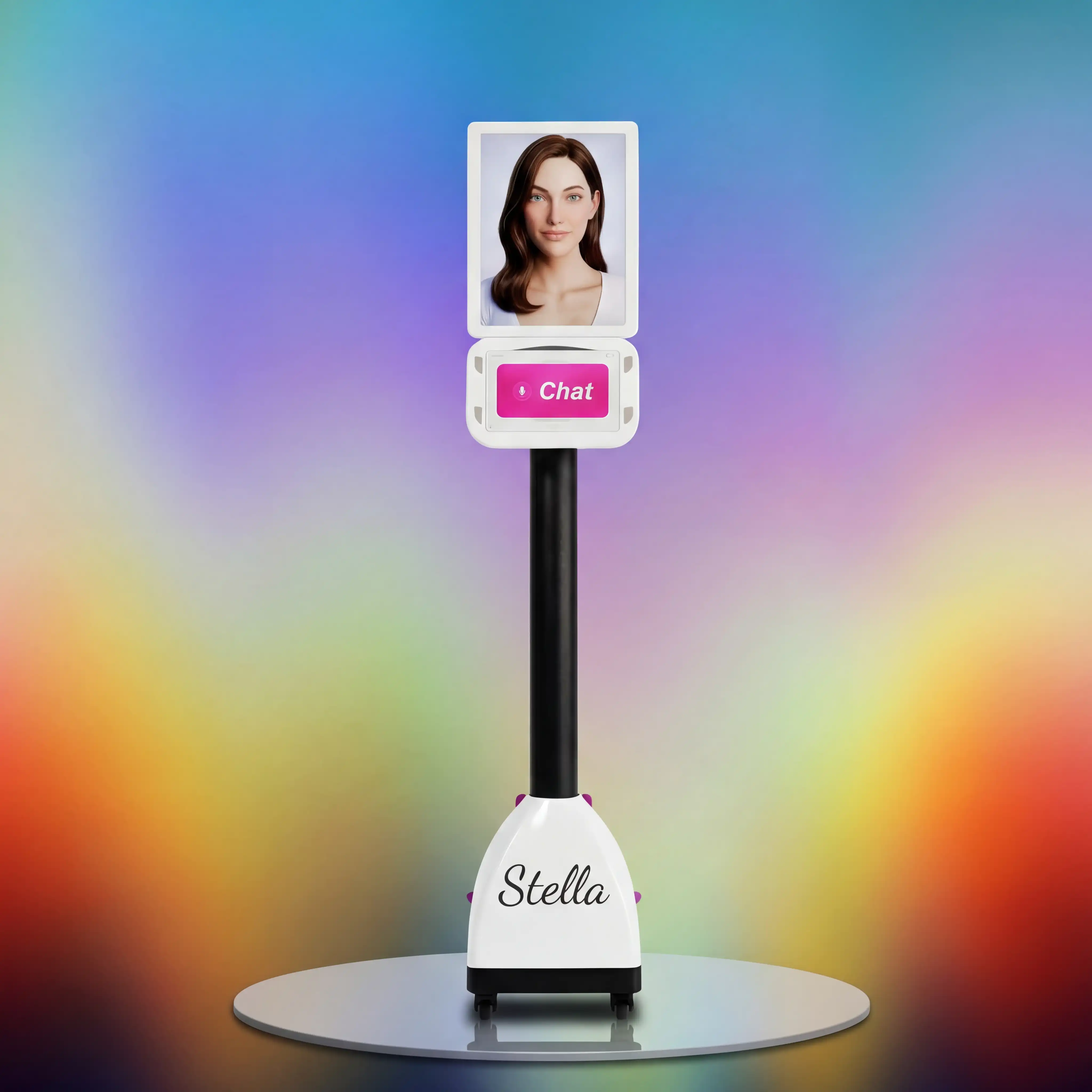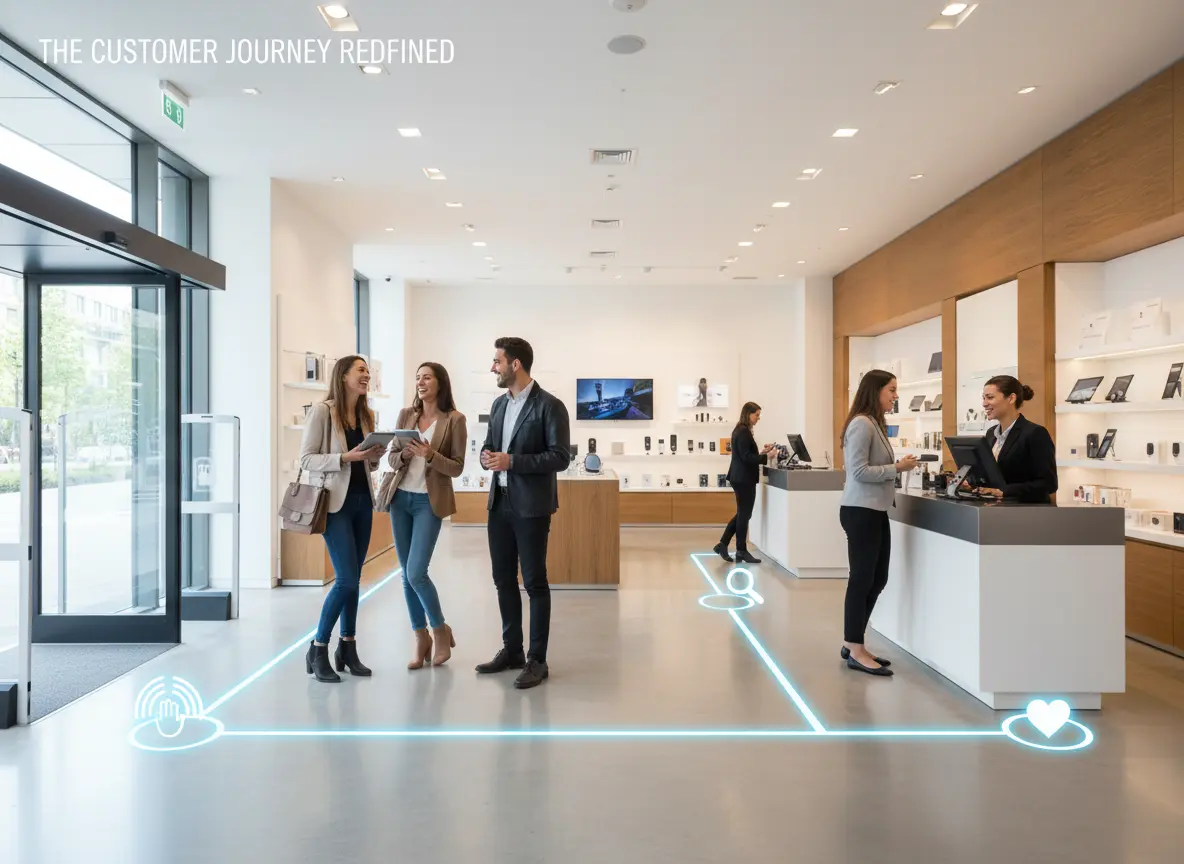Welcome to the Hiring Hunger Games
Let’s play a little game. Close your eyes and picture your worst hire ever. Was it the one who thought “inventory management” meant hiding in the stockroom and scrolling through TikTok? Or maybe the one whose idea of upselling was mumbling, “You want fries with that?” at the checkout counter of your boutique clothing store? We’ve all been there. We’ve all made that hire—the one who looked great on paper but had the on-the-floor presence of a damp sponge.
The retail turnover rate is famously, painfully high—hovering around 70% in some reports. That’s not just a statistic; it’s a constant, resource-draining headache for you. The endless cycle of posting jobs, sifting through resumes, and conducting interviews is exhausting. And a bad hire costs more than just a salary. It costs training time, manager sanity, team morale, and, worst of all, lost sales.
But what if I told you that you could drastically improve your odds with a few simple tweaks to your interview process? Hiring isn’t about finding a warm body to fill a shift. It’s about finding a brand ambassador, a problem-solver, and a revenue-driver. And the secret isn't a bigger stack of resumes; it's a smarter set of questions.
Beyond the Resume: Uncovering Core Competencies
A resume tells you what a candidate has done. A great interview tells you what a candidate can do for you. It's time to stop asking layup questions like "What are your greatest strengths?" (Answer: "I'm a hard-working perfectionist.") and start digging for the gold. These questions are designed to move past rehearsed answers and get to the heart of how someone actually operates.
The "Tell Me About a Time When..." Situational Superstar
Behavioral questions are your secret weapon. Why? Because past behavior is the best predictor of future behavior. Instead of asking a hypothetical, you’re asking for a real-life story. It's much harder to fudge a detailed account than it is to say, "Oh yes, I'm great with angry customers."
Try these on for size:
- "Tell me about a time you had to deal with a truly, spectacularly unreasonable customer. What did they want, what did you do, and what was the final outcome?"
This question reveals their patience, de-escalation skills, and whether they crumble or rise under pressure. You’re listening for empathy, professionalism, and a focus on solutions, not just blame. - "Describe a situation where a team goal was at risk because of a coworker. How did you handle it?"
This isn't about encouraging tattletales. It's about uncovering their approach to teamwork, accountability, and professional conflict. Do they step up, offer help, and communicate, or do they just let the ship sink? - "Walk me through a time you went above and beyond for a customer without being asked by a manager."
This one is huge. It separates the clock-watchers from the genuinely invested. You’re looking for initiative and an innate understanding that exceptional service isn’t a task on a checklist; it’s a mindset.
Gauging Sales Instincts (Without Asking "Can You Sell?")
Anyone can claim to be a "people person" who "loves to sell." Yawn. What you really want is someone who understands that modern selling isn't about high-pressure tactics; it’s about consultation and problem-solving. It's about making the customer feel smart and confident in their purchase.
Ditch the script and ask:
- "Imagine a customer is looking for our most expensive widget, but after talking to them, you realize our mid-range widget is a much better fit for their actual needs. What do you do?"
The correct answer is always, always to recommend the right product for the customer. This question is a test of integrity. A great salesperson knows that building long-term trust is infinitely more valuable than a single, shortsighted commission. - "Pick one item from this room and sell it to me in 60 seconds."
This on-the-spot challenge tests their ability to think quickly, identify key benefits (not just features), and communicate persuasively. Don't look for a perfect pitch; look for enthusiasm, creativity, and the ability to connect a product to a person's needs.
Freeing Up Your All-Stars for What Matters
You’ve done it. You’ve asked the right questions and hired an absolute superstar. They’re charismatic, knowledgeable, and great with customers. So why are they spending half their day answering, "What time do you close?" or "Where are the sale items?" for the tenth time? Even the best employees get bogged down by repetitive, low-impact tasks that drain their energy and pull them away from what they do best: creating amazing customer experiences and driving sales.
Let Your Team Shine (and Your Robot Greet)
Imagine if your new superstar never had to point someone to the fitting rooms again. Imagine if they could focus entirely on providing expert advice, styling customers, and closing complex sales. That’s where technology can become your team’s best friend. An in-store assistant like Stella can be your 24/7 frontline champion, positioned at the entrance to greet every single customer, promote your latest BOGO offer, and answer all those frequently asked questions.
By automating the mundane, you empower your human team to handle the meaningful. Stella ensures no shopper walks in unnoticed and that every promotion gets its moment in the spotlight. This frees up your staff to build rapport, solve unique customer problems, and provide the kind of memorable, high-touch service that creates loyal, repeat customers. A great hire is an asset; a great hire who is free to do their best work is a competitive advantage.
The "Why Us?" and "What If?" Questions
Once you’ve established competency, you need to gauge motivation and adaptability. A skilled but unmotivated employee is just as damaging as an enthusiastic but inept one. And in the chaotic world of retail, the ability to think on your feet isn’t a bonus—it’s a core survival skill.
Unmasking Motivation (and Dodging the Desperate)
The question "Why do you want to work here?" is tired. The answer is almost always "Because I need a job and you're hiring." You need to go deeper to see if they are genuinely interested in your store or just any store.
Upgrade your questions to:
- "Based on what you know about our brand, what's one thing you think we do really well and one thing you see as an opportunity for improvement?"
This question instantly reveals if they’ve done a shred of research. A thoughtful answer shows preparation and genuine interest. It also gives you a peek into how they think strategically. - "Looking at the job description, what part of this role are you most excited to take on? What part seems like it will be the biggest challenge for you?"
This two-part question uncovers their passions and their self-awareness. Their excitement tells you what will motivate them, and their honesty about challenges shows maturity and a willingness to learn.
The Problem-Solving Gauntlet
Retail is 10% neatly folded sweaters and 90% pure, unadulterated chaos. You need people who don’t freeze when things go sideways. You need people who see a problem not as a crisis, but as a puzzle to be solved.
Throw them a curveball:
- "The credit card machine goes down during our busiest hour. There are five people in line, and your manager is on their lunch break. Describe your first three actions."
There's no single "right" answer here. You're looking for their thought process. Do they prioritize communication (calmly informing the waiting customers)? Do they try to troubleshoot (rebooting the system)? Do they have a backup plan (calling the manager, using a manual imprinter if available)? This is a test of grace under fire. - "A customer is demanding a refund for a final sale item, which is clearly against our posted policy. They are starting to make a scene. What do you do?"
This is a classic retail dilemma. You’re testing their ability to balance policy with customer satisfaction. The best answers involve acknowledging the customer's frustration, calmly and politely explaining the policy, and attempting to find an alternative solution (like store credit or an exchange) before escalating to a manager.
A Quick Reminder About Stella
While you're busy hiring the perfect human team, don't forget about the perfect robotic teammate. Stella is your friendly, tireless in-store assistant who greets every customer, promotes every deal, and frees up your staff to do what they do best—sell. She’s the most reliable employee you’ll ever have, and she works for a simple, affordable monthly subscription.
Conclusion: Stop Interviewing, Start Investigating
Hiring smarter isn't about having a magical crystal ball; it's about being a better detective. Your mission is to move beyond the polished resume and the rehearsed answers to uncover the truth about a candidate's skills, attitude, and problem-solving abilities. Ditch the old, tired script and start asking questions that make people think.
Your actionable next step? Before your next interview, choose three questions from this post—one behavioral, one problem-solving, and one motivational. Replace three of your old standbys. Watch how the conversation changes. You'll get more substance, more insight, and a much clearer picture of who you're about to hand the keys to your store.
Your next five-star employee is out there waiting. You just have to ask the right questions to find them. And for handling the other thousand things on your plate? Well, there's a robot for that.





















